POSTCONFERENCE MATERIALS
Below you will find presentations presented during the Neonatus 2019 Conference.
Copying, processing, dissemination of these materials in whole or in part without the author’s consent is prohibited.
NEONATUS 2019
10-11 October 2019
CZWARTEK – 10.10.2019r. (THURSDAY 10th)
SESJA I (SESSION I) –DIAGNOSTYKA OBRAZOWA W NEONATOLOGII / IMAGE DIAGOSIS IN NEONATAL CARE (E. Helwich, K. Kornacka)
09.30 – 09.50 Wybór odpowiedniego badania obrazowego w diagnostyce noworodka w różnych sytuacjach klinicznych (Imaging diagnostics tolls in different clinical situations) – E. Helwich, Warsaw, Poland
09.50 – 09.55 Pulmonary ultrasonography of very low birth weight infants and its safety – A. Buczyńska, Kraków, Poland
09.55 – 10.00 Lung ultrasound in the diagnosis of neonatal respiratory failure prior to patient transport – M. Jagła, Kraków, Poland
10.00 – 10.05 Utilization of ultrasonography in neonatal lung abscess diagnostics – M. Król, Wrocław, Poland
10.05 – 10.10 Ultrasound evaluation of endotracheal tube position in neonatal practice – A. Pająk, Poznań, Poland
10.10 – 10.15 Detection of free air in neonatal ultrasonography- unusual findings – E. Sobaszek-Rzeźnik, Kraków, Poland
SESJA II (SESSION II) –ZAKAŻENIA / INFECTIONS (P. Krajewski, K. Wróblewska-Seniuk)
10.45 – 11.10 Dowody medyczne w diagnostyce i leczeniu wczesnego zakażenia (An evidence-based approach to early-onset sepsis) – R. Polin, New York, USA
11.10 – 11.35 Ochrona antybiotykowa w NICU (Antibiotic stewardship in the NICU) – A. Berger, Vienna, Austria
11.35 – 12.00 Zakażenia nabyte – czy się czegoś nauczyliśmy? (Healthcare-associated infections: Lessons learned and relearned) – R. Polin, New York, USA
12.00 – 12.15 Poszerzona profilaktyka zakażeń RSV w Polsce – grant edukacyjny firmy Abbvie (RSV prophylaxis in Poland) – E. Helwich, Warsaw, Poland
12.15 – 12.40 Efektywniejsza profilaktyka zakażenia wirusem RS (Better RSV prophylaxis) – M. Goldstein, Loma Linda, USA
SESJA III (SESSION III) –WYZWANIA KLINICZNE / CLINICAL CHALLENGES
(J. Czech-Kowalska, M. Rutkowska)
13.50 – 14.15 LISA i odległe efekty (Less invasive surfactant administration and long term outcome of extremely premature infants) – A. Berger, Vienna, Austria
14.15 – 14.40 Jak znieczulać do intubacji? (How to sedate a newborn during intubation?) – S. Simons, Rotterdam, The Netherlands
14.40 – 15.05 Jak można uniknąć BPD? (Interventions to prevent BPD: What does the future hold?) – R. Polin, New York, USA
15.05 – 15.20 Łożysko – punkt widzenia neonatologa (How should neonatologist treat the placenta? New treatment for pre-eclampsia?) – S. Simons, Rotterdam, The Netherlands
SESJA IV (SESSION IV) – NOWE / STARE TERAPIE W NEONATOLOGII / NEW / OLD THERAPIES IN NEONATOLOGY (I. Maroszyńska, A. Piotrowski)
16.00 – 16.25 Wentylacja płynowa i czy możemy uniknąć BPD? (Liquid Ventilation for Neonates…Who can we treat and can we prevent BPD?) – W. Fox, USA
16.25 – 16.50 ECMO w neonatologii (The Role of ECMO in neonates) – J. Llevadias, Newcastle, England
16.50 – 17.05 Nowe zalecenia: surfaktant i wspomaganie oddechu – grant edukacyjny firmy Chiesi (New clinical guidelines: surfactant therapy and breathing support – are we having consensus?) – K. Wróblewska-Seniuk, Poznań, Poland
PIĄTEK – 11.10.2019r. (FRIDAY 11th)
SESJA V (SESSION V) –EDUKACJA PODYPLOMOWA/ CONTINOUS MEDICAL EDUCATION
(R. Bokiniec, B. Kociszewska-Najman)
09.00 – 09.15 ECHO – podstawowe narzędzie w diagnostyce niewydolności krążenia (Echocardiography – basic tool for neonatologist) – W. Błaż, Rzeszów, Poland
09.15 – 09.40 PCT – marker zakażenia (PCT – early marker of infection) – A. Piotrowski, Poland
09.40 – 10.05 Wspomaganie oddechu wysokimi przepływami (Hi flow canulae ventilation) – M. Goldstein, USA
10.05 – 10.20 Kiedy stosować wentylację NAVA? (When to use NAVA ventilation?) – J. Mazela, Poznań, Poland
10.20 – 10.40 Cyfrowy Blok Operacyjny (Digital OR) – P. Hoogendoorn, The Netherlands (INTER forward solutions)
SESJA VI (SESSION VI) – HEMODYNAMIKA I KRĄŻENIE / HEMODYNAMICS AND CIRCULATIONS (T. Szczapa, W. Błaż)
11.10 – 11.30 ECHO – trudne przypadki neonatologiczne (Neonatal ECHO – challenging cases) – Y. Singh, UK
11.30 – 11.55 Nadciśnienie płucne i niewydolność krążenia w przepuklinie przeponowej (Pulmonary hypertension and cardiac dysfunction in Congenital Diaphragmatic Hernia: knowns and unknowns) – N. Patel, Scotland
11.55 – 12.20 Leki inotropowe i wazopresyjne w neonatologii (Right choice of inotropes and vasopressors in neonates) – J. Llevadias, Newcastle, England
12.20 – 12.45 Rola ECHO w Terapii iNO poza wskazaniem (Echocardiography and iNO therapy) – N. Patel, Scotland
SESJA VII(SESSION VII) –ŻYWIENIE / GUTS AND NUTRITION (B. Pawlus, D. Gruszfeld)
14.05 – 14.55 Karmienie wcześniaka – po pierwsze nie szkodzić (Preterm nutrition – first do no harm) – A. Lucas, UK
14.55 – 15.20 Korzyści zdrowotne z suplementacji mleka dla niemowląt w MFGM (Health benefits of feeding infants Milk Fat Globule Membranes) – O. Hernell, Swede
SESJA VIII (SESSION VIII) – DONIESIENIA WŁASNE / LEARNINGS FROM CASES (M. Wilińska, M. Borkowska-Kłos)
15.50 – 15.55 Vojta therapy improves rhythmicity and regularity of sucking in preterm neonates – M. Czajkowska, Wrocław, Poland
15.55 – 16.00 Glycaemic variability is associated with treatment requiring retinopathy of prematurity: a case-control study – M. Jagła, Kraków, Poland
16.00 – 16.05 Prediction model of bronchopulmonary dysplasia in preterm newborns – J. Jassem-Bobowicz, Gdańsk, Poland
16.05 – 16.10 Human breast milk therapy – The survey results – K. Karcz, Wrocław, Poland
16.10 – 16.15 What to eat when breastfeeding? – The survey results – K. Karcz, Wrocław, Poland
16.15 – 16.20 Diversity of lactation problems among mothers and lactation counseling in Poland – I. Lehman, Wrocław, Poland
16.20 – 16.25 Anthropometric characteristics and adipocytokines levels of newborns from mothers with diabetes type 1 – M. Paulavets, Minsk / Belarous
16.25 – 16.30 Developmental care and short-term outcomes in preterm infants – H. Pavlyshyn, Ternopil, Ukraine
16.30 – 16.35 Changes in total serum billirubin levels in infants with hypoxic-ischemic encephalopathy in the first four days after birth – J. Słowik, Opole, Poland
16.35 – 16.40 Delayed vs. early umbilical cord clamping for ELBW preterm infants – a pilot study – K. Szczepańska, Wrocław, Poland
SPEAKERS
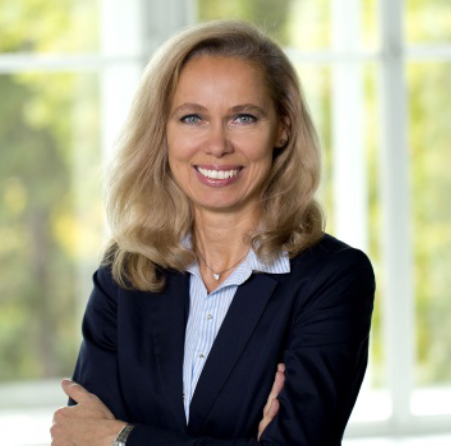 Berger Angelika, Professor (Vienna, Austria) – she is a Professor of Pediatrics, Neonatologist and Researcher with a special interest in the care of extremely premature infants as well as Infections and Immunology. She is Head of the Department of Neonatology, Pediatric Intensive Care and Neuropediatrics at the General Hospital Vienna and tenured professor of Neonatology and Pediatric Intensive Care of the Medical University Vienna. Her research interests are innovative strategies of management of the extremely premature infant, prevention, diagnosis and treatment of bacterial and viral infections of preterm infants, and the role of Ureaplasma species in the pathogenesis of preterm delivery as well as long- and short-term outcome of preterm infants. Angelika Berger is a member of several professional medical associations, Head of the Working Group on Neonatology and Pediatric Intensive Care in Austria since 2012, principal investigator of several large clinical trials and has published more than 100 articles in the field of peri- and neonatal medicine.
Berger Angelika, Professor (Vienna, Austria) – she is a Professor of Pediatrics, Neonatologist and Researcher with a special interest in the care of extremely premature infants as well as Infections and Immunology. She is Head of the Department of Neonatology, Pediatric Intensive Care and Neuropediatrics at the General Hospital Vienna and tenured professor of Neonatology and Pediatric Intensive Care of the Medical University Vienna. Her research interests are innovative strategies of management of the extremely premature infant, prevention, diagnosis and treatment of bacterial and viral infections of preterm infants, and the role of Ureaplasma species in the pathogenesis of preterm delivery as well as long- and short-term outcome of preterm infants. Angelika Berger is a member of several professional medical associations, Head of the Working Group on Neonatology and Pediatric Intensive Care in Austria since 2012, principal investigator of several large clinical trials and has published more than 100 articles in the field of peri- and neonatal medicine.
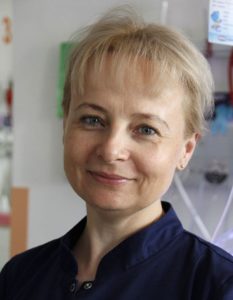
Bokiniec Renata, Doktor – absolwentka Akademii Medycznej w Warszawie. Specjalistka I stopnia w zakresie pediatrii i II stopnia w neonatologii. Po stażach i pracy w Wielkiej Brytanii i USA obecnie związana jest ze Szpitalem Klinicznym im. Księżnej Anny Mazowieckiej w Warszawie. Jest wykładowcą (w stopniu adiunkta) Warszawskiego Uniwersytetu Medycznego. Zainteresowania badawcze skupia na ocenie hemodynamiki układu krążenia u noworodków. Od wielu lat jest kierownikiem naukowym szkoleń z zakresu ultrasonografii noworodka.

Fox William, Professor (Philadelphia, USA) – he is a professor in the Division of Neonatology and Newborn Service at Children’s Hospital of Philadelphia (CHOP) and the University of Pennsylvania Health System. He is also the Medical Director of the Infant Breathing Disorder Center at CHOP. Prof. Fox also serves as an attending physician in the Newborn/Infant Intensive Care Unit at Children’s Hospital of Philadelphia as well as the Neonatal Intensive Care Unit at the Hospital of the University of Pennsylvania. He is highly active in the training and supervision of medical students, house staff and neonatal post-doctoral fellows. He is a nationally and internationally recognized speaker. His area of research is in neonatal pulmonary function, mechanical ventilation and liquid ventilation. He is the author of more than 100 publications including manuscripts, book chapters and abstracts, and the co-editor of the textbook, Fetal and Neonatal Physiology — now in its 4th edition. He is a member of many professional and scientific societies including the Society for Pediatric Research and the American Pediatric Society. He has received awards for excellence in teaching from resident physicians.
Helwich Ewa, Profesor – Kierownik Kliniki Neonatologii i Intensywnej Terapii Instytutu Matki i Dziecka w Warszawie. Konsultant Krajowy w dziedzinie neonatologii. Główne kierunki zainteresowań to wczesne uszkodzenia mózgu, ich ewolucja kliniczna i wpływ na rozwój.
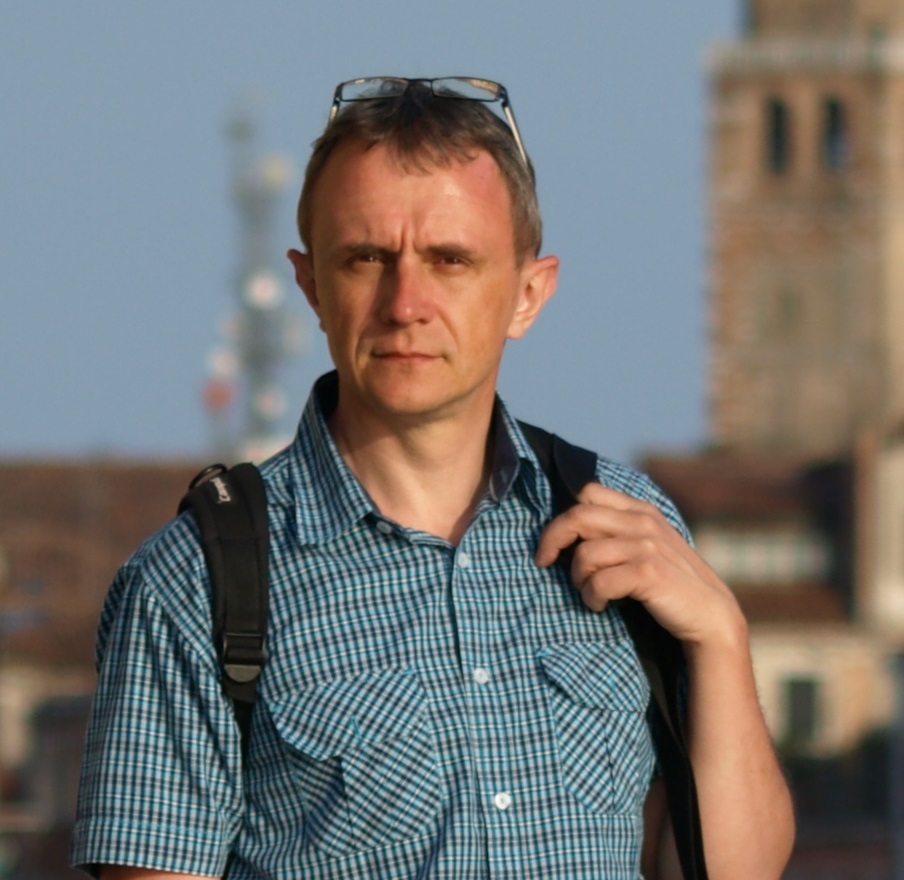
Kruczek Piotr, Doktor – pediatria, neonatolog, zatrudniony w Klinice Chorób Dzieci UJCM w Krakowie. Główny obszar zainteresowań zawodowych to intensywna terapia noworodka, diagnostyka ultrasonograficzna, w szczególności płuc, ocena zaburzeń hemodynamicznych. Od 27 lat nauczyciel akademicki zajmujący się szkoleniem przed i podyplomowym. Koordynator zajęć z pediatrii Szkoły Medycznej dla Obcokrajowców Wydziału Lekarskiego UJCM w Krakowie, wielokrotnie wyróżniany przez studentów jako najlepszy wykładowca. Od wielu lat organizator i kierownik kursów ultrasonografii prowadzonych w Klinice Chorób Dzieci UJCM, wykładowca Roztoczańskiej Szkoły Ultrasonografii. Członek Polskiego Towarzystwa Ultrasonografii (PTU), wice przewodniczący Sekcji Neonatologicznej PTU.

Lauterbach Ryszard, Profesor – ukończył Uniwersytet Jagielloński w Krakowie. Specjalista pediatrii i neonatologii. Kierownik Kliniki Neonatologii Szpitala Uniwersyteckiego w Krakowie. W latach 2001-2002 pełnił funkcję Konsultanta Krajowego w dziedzinie Neonatologii. Obecnie Konsultant Wojewódzki w dziedzinie Neonatologii. Członek Polskiego Towarzystwa Pediatrycznego, Vice-prezes Polskiego Towarzystwa Neonatologicznego, członek European Society of Clinical Microbiology and Infectious Diseases.
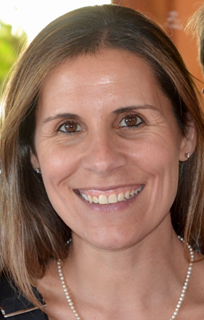 Llevadias Judit, Doctor (London, United Kingdom) – her training has been a combination of Paediatric Cardiology and Paediatric Cardiac Intensive Care (PCICU). Since March 2014 she is working as PCICU Consultant at Freeman Hospital in Newcastle. She first looked after ECMO patients in 2004. She has an extensive training in Paediatric Cardiology and Paediatric Intensive Care between Spain (Hospital San Joan de Déu in Barcelona) and United Kingdom (Freeman Hospital in Newcastle, Birmingham Children´s Hospital and Royal Brompton in London).
Llevadias Judit, Doctor (London, United Kingdom) – her training has been a combination of Paediatric Cardiology and Paediatric Cardiac Intensive Care (PCICU). Since March 2014 she is working as PCICU Consultant at Freeman Hospital in Newcastle. She first looked after ECMO patients in 2004. She has an extensive training in Paediatric Cardiology and Paediatric Intensive Care between Spain (Hospital San Joan de Déu in Barcelona) and United Kingdom (Freeman Hospital in Newcastle, Birmingham Children´s Hospital and Royal Brompton in London).
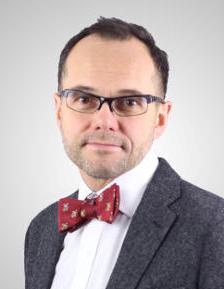
Mazela Jan, Profesor – Kierownik Kliniki Zakażeń Noworodka Uniwersytetu Medycznego w Poznaniu. Pracował w Centrum Medycznym Uniwersytetu Illinois w Chicago, Uniwersytetu Temple w Filadelfii, oraz prowadził badania w Centrum Medycznym Loma Linda w Kalifornii. Główne kierunki zainteresowań badawczych skupiają się wokół oceny jakości opieki okołoporodowej oraz aspektów związanych z podawaniem aerozoli pacjentom mechanicznie wentylowanym, w tym surfaktantów.
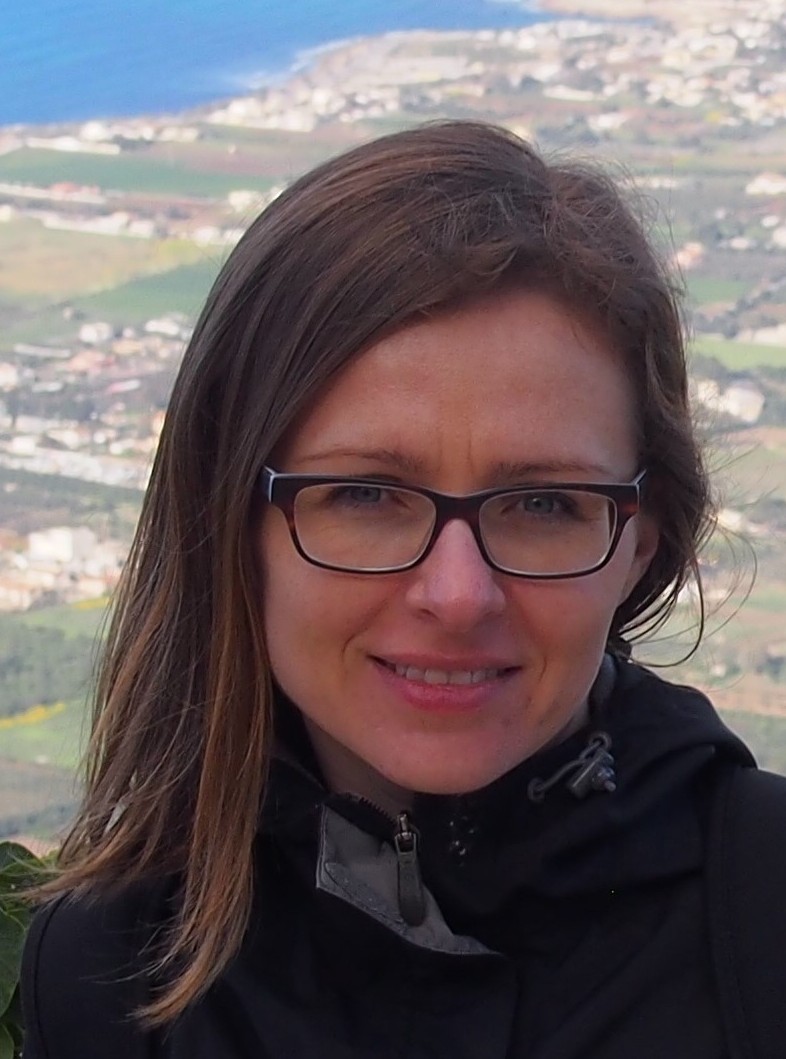
Ochoda-Mazur Agnieszka, Doktor – specjalista pediatrii i neonatologii. Stypendystka Fundacji Ady Marek-Rutkowskiej i Maksymiliana Rutkowskiego w Genewie, gdzie brała udział w pracach badawczych grupy J.Pugin’a nad odpornością wrodzoną wcześniaków. W 2012r. obroniła pracę doktorską pt. „Zaburzenia wybranych mechanizmów odporności przeciwbakteryjnej jako czynnik ryzyka wystąpienia sepsy u przedwcześnie urodzonych noworodków”. Od 2010r. posiada certyfikat PTU w zakresie ultrasonografii pediatrycznej. Uzyskała certyfikat POLKARD w dziedzinie echokardiografii noworodka. Od 2006r. pracuje w OITN Kliniki Neonatologii Szpitala Uniwersyteckiego w Krakowie. Od 2013r. organizuje warsztaty echokardiografii noworodka dla neonatologów.
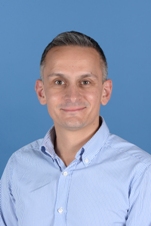
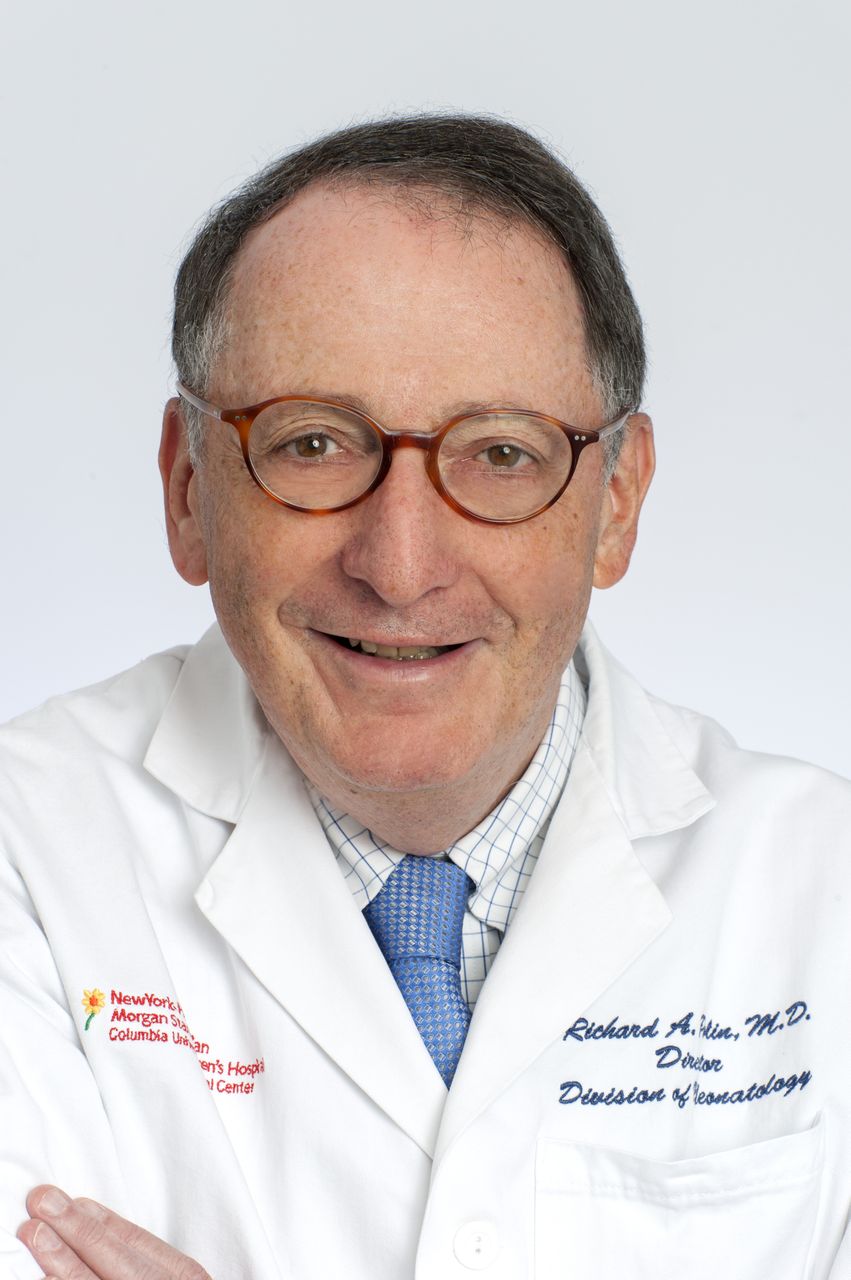 Polin Richard, Professor (New York, USA) – he is the William T. Speck Professor of Pediatrics at Columbia University, College of Physicians and Surgeons in the City of New York and has been Director of the Division of Neonatology at Morgan Stanley Children’s Hospital of New York-Presbyterian since 1998. After earning BA and MD degrees from Temple University, Dr. Polin completed a pediatric internship and residency at Children’s Memorial Hospital in Chicago, and a pediatric residency and neonatology fellowship at Babies’ Hospital in NY.
Polin Richard, Professor (New York, USA) – he is the William T. Speck Professor of Pediatrics at Columbia University, College of Physicians and Surgeons in the City of New York and has been Director of the Division of Neonatology at Morgan Stanley Children’s Hospital of New York-Presbyterian since 1998. After earning BA and MD degrees from Temple University, Dr. Polin completed a pediatric internship and residency at Children’s Memorial Hospital in Chicago, and a pediatric residency and neonatology fellowship at Babies’ Hospital in NY.An Associate Pediatrician at Children’s Hospital from 1975-1977, he was named Outstanding Pediatric Attending for 1976-1977. He won similar honors for 1978-79 and 1982-83 at The Children’s Hospital of Philadelphia, where he held the positions of Director of the Housestaff Training Program, Assistant and Associate Physician-in-Chief, Academic Coordinator of Pediatrics, and Acting Director, Neonatology. Temple University’s Medical School named Dr. Polin its outstanding alumnus in 1995. In 1998, Dr. Polin returned to Morgan Stanley Children’s Hospital of NY- Presbyterian as the Director of Neonatology and Vice-Chairman of the Department of Pediatrics. In 2005 he received the Physician of the Year Award both from the New York-Presbyterian Hospital Columbia University Medical Center and the Morgan Stanley Children’s Hospital of New York-Presbyterian, Division of Nursing. In the spring of 2006 Dr. Polin received the National Neonatal Education Award from the AAP’s Section on Perinatal Pediatrics and in 2017 he was inducted into the “Legends Hall of Fame”.Dr. Polin has published over 200 original papers, 20 books (including Fetal and Neonatal Physiology, Workbook in Practical Neonatology, Pediatric Secrets and Fetal and Neonatal Secrets,) and more than 200 abstracts. Dr. Polin is the Chair of the NICHD Neonatal Research Network executive steering committee, and he is the immediate past chair of the Sub-board of Neonatal-Perinatal Medicine.

Reiss Irwin, Profesor – specjalista z zakresu neonatologii i pediatrii. Kierownik Kliniki Neonatologii i Intensywnej Opieki Noworodka w Erasmus MC-Sophia Children’s Hospital w Rotterdamie. Był głównym badaczem w projektach: Renin-angiotensin system blockade beyond angiotensin i An international multicenter randomized clinical trial of high frequency oscillation (HFO) versus conventional mechanical ventilation (CMV) in newborns with congenital diaphragmatic hernia. Członek towarzystw: ESICM, GNPI, ESPNIC. Recenzent czasopism m.in.: Pediatric Research, Respiratory Research, Neonatology, Experimenal Lung Rsearch.
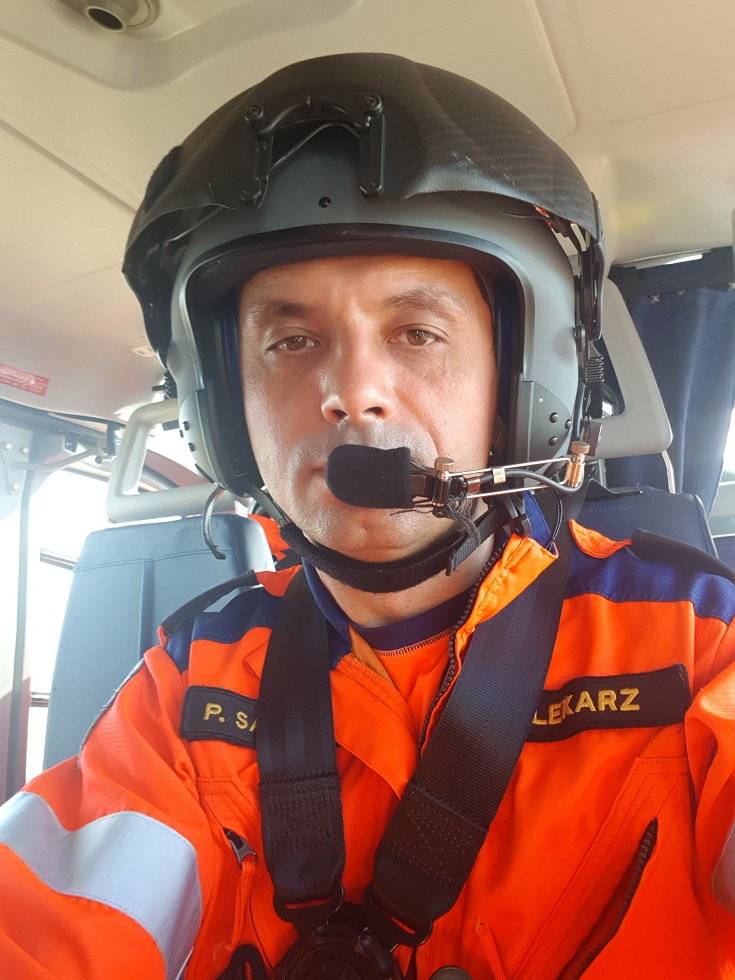
Samocki Paweł, Lek. med. – absolwent Akademii Medycznej w Warszawie. Specjalista medycyny ratunkowej. Lekarz Koordynator w Lotniczym Pogotowiu Ratunkowym odpowiedzialny m. in. za transporty międzyszpitalne noworodków. Główne zainteresowania to medycyna ratunkowa wieku dziecięcego, intensywna terapia noworodka oraz zastosowanie krwi i jej składników krwi w opiece przedszpitalnej.
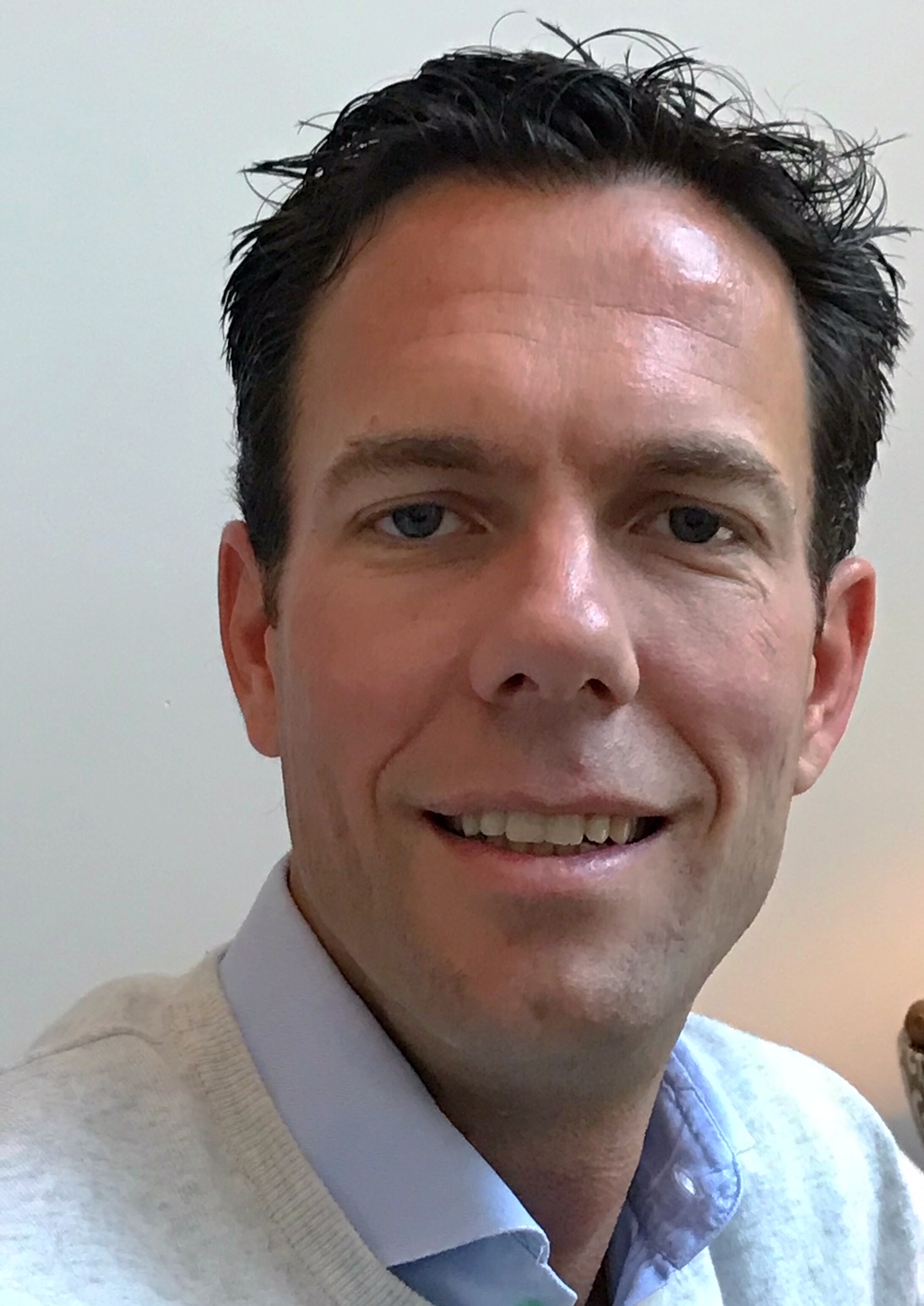
Simons Sinno, Doctor (Rotterdam, The Netherlands) – he is a neonatologist from Erasmus MC – Sophia Children’s Hospital in Rotterdam the Netherlands. He started his research in the area of analgesia and neonatal pain. Meanwhile his focus is on perinatal and neonatal pharmacology. In that way he aims to improve drug treatment in newborn infants, but also to develop new drug therapies that might improve outcome of newborns in the future. He is the secretary of the pharmacology section of the European Society for Pediatric Research.

Szymański Piotr, Lek. med. – aktualnie w trakcie specjalizacji z neonatologii, zatrudniony w Oddziale Noworodkowym Szpitala Ginekologiczno-Położniczego Ujastek w Krakowie. Główny obszar zainteresowań zawodowych to intensywna terapia noworodka, w szczególności diagnostyka ultrasonograficzna. Wykładowca kursów USG organizowanych w Klinice Chorób Dzieci UJCM w Krakowie i Szpitalu Ujastek w Krakowie. Członek PTU.

Wesołowska Aleksandra, Dr n. biol – Prezes Fundacji Bank Mleka Kobiecego, pracownik naukowy Warszawskiego Uniwersytetu Medycznego, Kierownik Uniwersyteckiej Pracowni Badań nad Mlekiem Kobiecym i Laktacją przy Regionalnym Banku Mleka w Św. Rodziny, Prezes i współzałożyciel Stowarzyszenia na rzecz Banku Mleka Kobiecego, prezes powstałej w 2010 r. Fundacji Bank Mleka Kobiecego. Laureatka prestiżowej nagrody im. T. Sendzimira przyznanej w 2008 roku przez Fundację Kościuszkowską za projekt reaktywacji banków mleka w Polsce. Autorka licznych artykułów i wystąpień w prasie branżowej i kobiecej na temat idei banku mleka kobiecego i sposobu działania takich placówek w Polsce i za granicą. Redaktor Naukowy monografii pt. Banki Mleka w Polsce. Idea i Praktyka.Członek Zarządu Europejskiego Stowarzyszenia Banków Mleka (ang. European Milk Bank Association, EMBA) oraz koordynator reaktywacji banków mleka z ramienia EMBA na Polskę. Mama czwórki dzieci.
PHOTO GALLERY

